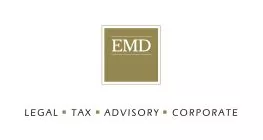In view of the particular nature of the market for medicinal products, Maltese law provides for specific provisions. The first of which is what is known as the Supplementary Protection Certificate.
Supplementary Protection Certificates (SPCs)
In order for a pharmaceutical/medicinal product to be placed on the market it must obtain what is known as a marketing authorisation. The producer of such product must prove that the product is effective and safe particularly through clinical trials. The process of obtaining such authorisation can take a significant amount of time effectively reducing the actual period of protection for the patent.
Say for example, both a patent and a marketing authorisation are applied for, the patent is granted but the authorisation is only granted 7 years after the patent. This means that the term of protection of the patent is significantly reduced from a full term of 20 years to 13 years.
Therefore, by virtue of Council Regulation (EEC) No 1769/92 'Supplementary Protection Certificates' were introduced, which provided for an extension of the term of up to a maximum of 5 years in cases where both a patent and a marketing authorisation have been granted.
In Malta these provisions are echoed in subsidiary legislation, named Patents (Medicinal Products) Regulations (LN 261 of 2002). By virtue of this Legal Notice an SPC is granted for a period equivalent to the period between the sixth year from filing until the actual date of authorisation, but in all cases for a maximum of 5 years. If the marketing authorisation is granted before the sixth year then there can be no extension. However, if the authorisation is granted after the sixth year then the SPC may be granted for a period equal to the time that has elapsed between the sixth year from filing until the actual marketing authorisation is granted.
Thus for example, if the Patent is granted in 2008 and the marketing authorisation is granted in 2020, then 7 years would have lapsed from the sixth year from filing (2013) until the authorisation is granted in 2020. Therefore the patent term may be extended under an SPC but only up to the maximum period of 5 years. If, the period between the sixth year and the grant of authorisation is less than 5 years then such shorter period would apply.
The second specific provision which applies to medicinal/pharmaceutical products is what is known as the research exemption.
Research Exemption
Manufacturers of generic versions of existing medicinal products may, instead of undergoing extensive trials, refer to the original manufacturer's approval and clinical trials. In order to do so, they must prove that their product is bioequivalent or bio-similar. Therefore, they must carry out studies and tests on their generic product and the reference product (i.e. the already patented product).
Generic manufacturers aim to enter the market immediately upon the expiration of the patented product's term and in order to do so very often they start carrying out tests even before the end of the patent term. The question arises whether such testing before the expiration of the patented term constitutes an infringement of the Patent/SPC.
Roche-Bolar case 1984 & Hatch-Waxman exemption; -
This question was decided in the 1984 US Roche-Bolar case. Bolar was a generics drugs manufacturer and had carried out tests on the product patented under Roche's patent (active ingredient of Valium) prior to the lapse of the patent term, therefore, Roche sued Bolar claiming patent infringement. The law only allowed research for scientific – non-economic purposes. Therefore the Court held that Bolar was in violation of the patent.
Immediately after this decision the Hatch Waxman Act was passed by the US Senate allowing experimentation for the purpose of obtaining FDA Approval. In a more recent case, Merck v. Integra Lifesciences, the US Supreme Court further widened the interpretation of this exemption to include research activities for the development of a new drug.
In Europe, there were no common EU-level provisions in relation to this matter leading to a divergent and inconsistent approach to experimental use across the Member States. This hindered the development of the internal market. Therefore by virtue of Directive 2004/27/EC this exemption was introduced. The Directive provides that:
Conducting the necessary studies and trials with a view to [abridged applications, hybrid applications & bio-similar applications] and the consequential practical requirements shall not be considered as contrary to patent rights or to supplementary protection certificates for medicinal products.
However, it is not as extensive as the US interpretation since it only applies to research in relation to biosimilar/bioequivalent products. These exemptions are also included in our law under the Patents and Designs Act (Chap. 417 of the Laws of Malta). In fact, use for experimental purposes for scientific research (Article 27(6)(b)) and uses reasonably related to the development and submission of information required under any law regulating the manufacture, construction use/sale of medicinal or phytopharmaceutical products (Article 27(6)(d)) are listed amongst those acts which are not considered infringement of a patent under Maltese law.
The research exemption, coupled with a number of business incentives being offered by Malta Enterprise, has attracted foreign investment in the generics pharmaceutical industry since it allows generics pharmaceutical companies to complete all preparatory work on a new product – including production development and licensing – while the branded original is still under patent. They will then be ready to market it immediately when the patent expires, gaining up to a year on manufacturers in countries which do not allow for the research exemption.
The content of this article is intended to provide a general guide to the subject matter. Specialist advice should be sought about your specific circumstances.

